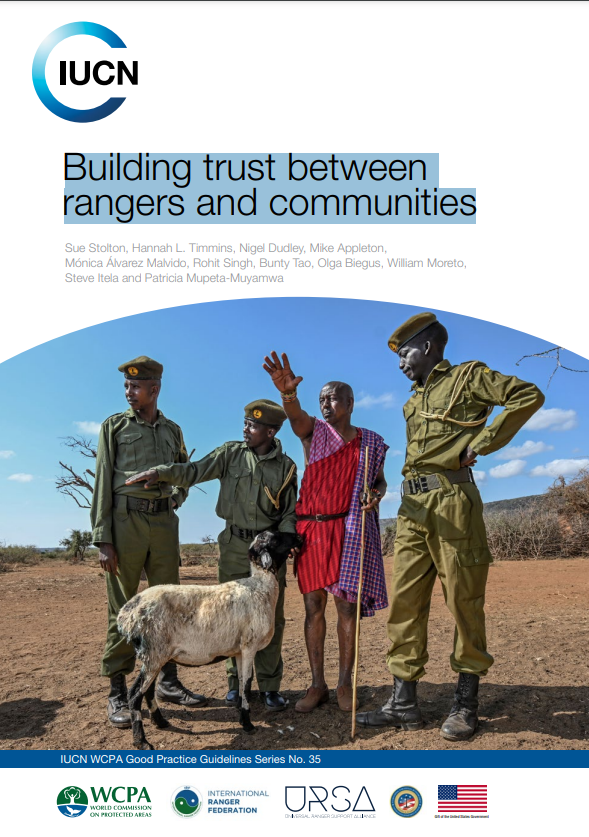
This is the first volume in the WCPA Good Practice Guidelines that is predominantly by rangers and for rangers. The editors worked with partners to collect good practices and stories from rangers worldwide, reflecting global experience and lessons learned.
text focuses on actions that rangers, and to a lesser extent managers, can do themselves. It does not address institutional changes that would need intervention at government level. Whilst the latter are often necessary, decisions are out of the hands of individual rangers. Nor is the guide the last word on the issue, another global ranger survey is being carried out simultaneously with the production of these guidelines and we will continue to learn about ranger needs, strengths and challenges in the future.
The guidelines outline a set of principles and good practices, along with many ranger stories and capacity building guidance, that can contribute to professionalisation, competence and conduct. Local, national and international bodies, IRF, its many member organisations, and URSA, have been providing opportunities to share experience and develop ranger guidance and policy for many years. Thanks to this work, a better understanding of ranger roles, rights, responsibilities and challenges is being developed, including through a code of conduct which provides principles for behaviour, ethics and accountability,13 along with defined competencies to help ensure that training needs are met14, both of which were essential sources for these guidelines.














